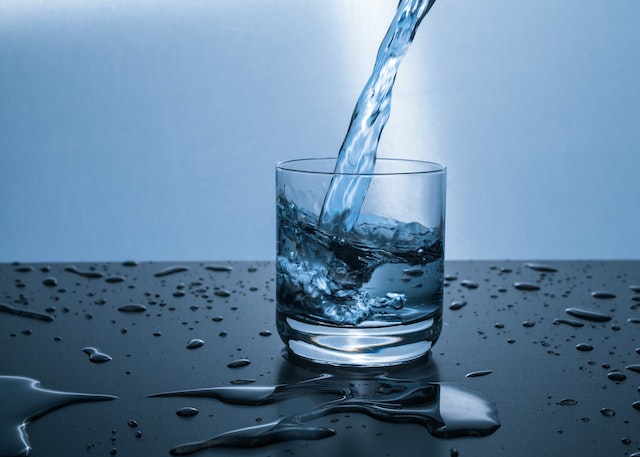Water is a fundamental component of our planet, and a vital resource for life as we know it. As one of the most abundant substances on Earth, it’s easy to take water for granted. However, understanding what water is made of is essential for appreciating its unique properties and the role it plays in biological systems. In this post, we’ll explore the chemical composition of water, the properties that arise from its molecular structure, and the ways in which it supports life. Whether you’re a chemistry student, a biology enthusiast, or simply interested in the natural world, this post will provide a comprehensive overview of what water is made of and why it’s so important.
The Chemical Composition of Water
Water is a chemical compound composed of two hydrogen atoms and one oxygen atom, with the chemical formula H2O. This means that each water molecule contains two hydrogen atoms bonded to one oxygen atom through covalent bonds.
Polar Molecule
The chemical composition of water is crucial to its unique properties and its role in biological systems. The hydrogen atoms in water are positively charged, while the oxygen atom is negatively charged. This creates a polar molecule, meaning that there is an uneven distribution of electrons between the atoms, resulting in a slight positive charge at one end of the molecule and a slight negative charge at the other.
Tetrahedral Geometry
In addition to its chemical composition, the structure of water molecules is also important. The V-shaped arrangement of the hydrogen and oxygen atoms creates a tetrahedral geometry that allows for hydrogen bonding between water molecules. These hydrogen bonds are responsible for water’s high boiling point and heat capacity, as well as its ability to exist in three states (solid, liquid, and gas) at temperatures suitable for life.
Chemical Properties of Water
The chemical properties of water, including its polarity and hydrogen bonding, are responsible for many of its unique characteristics. For example, water has a high surface tension, which allows it to form droplets and enables capillary action in plants. Water’s polarity also makes it an excellent solvent, able to dissolve a wide range of substances and carry nutrients and waste products within biological systems.
Understanding the chemical composition and molecular structure of water is essential for appreciating its unique properties and its role in biological systems
Properties of Water
Water has a variety of properties that are essential to life and make it a unique substance.
Water’s High Specific Heat and Heat of Vaporization
Water has a high specific heat, meaning that it can absorb a lot of heat energy before its temperature rises significantly. This property makes water an effective regulator of temperature in biological systems, preventing sudden changes in temperature that could damage cells. Additionally, water has a high heat of vaporization, meaning that it requires a lot of energy to evaporate. This property is responsible for water’s cooling effect through evaporation and helps to regulate temperature in the environment.
Cohesion, Adhesion, and Surface Tension
Water molecules have strong cohesive forces, meaning that they are attracted to each other and can stick together. This property is responsible for the phenomenon of surface tension, which allows water to form droplets and allows some organisms to walk on water. Additionally, water molecules can adhere to other substances through adhesion, allowing water to be transported through plants and other biological systems.
Density and Freezing
Water is less dense as a solid than as a liquid, meaning that ice floats on water. This property is important for life in bodies of water, as it allows ice to form on the surface, insulating the water below and preventing it from freezing completely.

Water: An excellent solvent
Water is an excellent solvent due to its polarity and ability to form hydrogen bonds with other molecules. This property allows water to dissolve a wide range of substances, including nutrients, waste products, and gases, making it an essential component of biological systems.
pH and Ionization
Water can also act as an acid or a base, meaning that it can donate or accept protons. This property is important for maintaining pH balance in biological systems and plays a role in many biochemical reactions.

The Role of Water in Biology
Water plays a crucial role in many biological processes, acting as a solvent for nutrients and waste products, and helping to maintain hydration and homeostasis in the body.
Importance of water for Hydration and Homeostasis
Water is essential for hydration, allowing the body to maintain proper fluid balance and regulate body temperature. Water also helps to transport nutrients and oxygen to cells and remove waste products, keeping the body functioning properly. Additionally, water plays a key role in maintaining homeostasis, the balance of internal conditions in the body, by regulating pH levels, blood pressure, and other physiological processes.
Photosynthesis and Respiration
Water is also involved in important biological processes such as photosynthesis and respiration. In photosynthesis, water is used to generate oxygen and organic compounds that are essential for life. In respiration, water is a byproduct of the breakdown of organic compounds for energy.
Chemical Interactions of water
The chemical interactions of water molecules are crucial for these biological processes. For example, hydrogen bonding between water molecules helps to maintain the structure of proteins and other biological molecules. The polar nature of water also allows it to interact with other polar molecules, such as carbohydrates and proteins, enabling chemical reactions and the formation of complex biomolecules.
In addition to its chemical properties, water also has a number of biological properties that make it essential for life on Earth. It is a solvent, which means that it can dissolve many different substances, allowing for the transport of nutrients and other molecules throughout the body. Water also helps to regulate body temperature, cushion and protect organs, and lubricate joints.
Why do we have water in the Earth?
Water is present on Earth for several reasons. One of the main reasons is that it is a byproduct of the formation of the solar system. The solar system formed from a cloud of gas and dust, known as the solar nebula. As the dust particles began to clump together and form larger bodies, such as planets and moons, they also began to collect water molecules. It is thought that comets, which are made mostly of water ice, delivered much of the water to the early Earth.
Another reason for the presence of water on Earth is the unique conditions that exist on our planet. The Earth’s distance from the sun, as well as its atmosphere and magnetic field, all work together to create conditions that allow water to exist in its liquid form. Without these conditions, water would either freeze or evaporate, making it impossible for life as we know it to exist.
Water is also continually being replenished on Earth through the water cycle. The water cycle, also known as the hydrologic cycle, is the process by which water evaporates from the Earth’s surface, forms clouds, and then falls back to the surface as precipitation. This process helps to maintain the Earth’s water supply and distribute it evenly across the planet.
In addition, water is also present in the Earth’s interior. It is believed that water is trapped in the Earth’s crust and mantle in the form of hydrous minerals, which are minerals that contain water molecules within their crystal structure. This water is not accessible at the surface, but it plays a crucial role in many geologic processes, such as volcanic eruptions and the formation of minerals.
The Fascinating World of Volcanoes
Conclusion
In this post, we’ve explored the chemical composition and properties of water, as well as its crucial role in biological systems. Water is a simple yet complex substance that is made up of two hydrogen atoms and one oxygen atom, and its unique molecular structure gives it special properties that make it an essential component of life.
Water is a versatile solvent and an effective temperature regulator, and its importance in maintaining proper hydration and homeostasis in the body cannot be overstated. It also plays a critical role in biological processes such as photosynthesis and respiration, and its chemical interactions enable the formation of complex biomolecules that are essential for life.
Understanding what water is made of and its significance in biological systems is not only important for scientific research, but it also has practical implications for our everyday lives. By drinking more water and protecting our water resources, we can ensure that we stay healthy and maintain proper hydration. Additionally, supporting scientific research on water can lead to new discoveries and innovations that can help us address important challenges such as water scarcity and pollution.
In conclusion, water is a fascinating substance that is essential for life and holds great potential for scientific research and innovation. Let’s continue to explore and appreciate the unique properties of water and work towards protecting this valuable resource for future generations.

